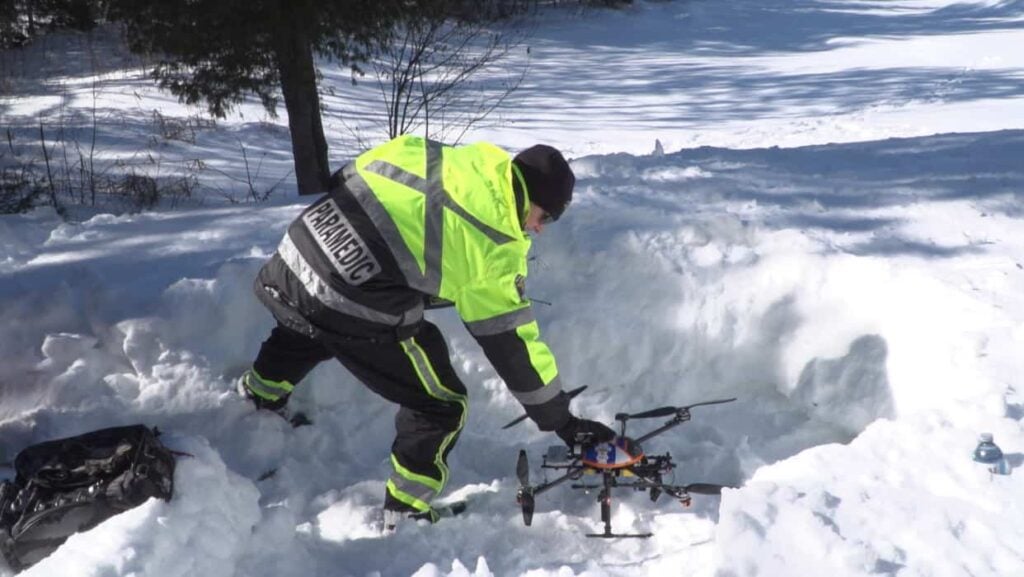
Kongsberg Geospatial has partnered with Larus Technologies and the Civil Air Search and Rescue Association of Canada (CASARA) in order to develop new drone-based search and rescue (SAR) solutions, for use in remote communities in Canada, that integrate geospatial software, artificial intelligence, and machine vision technologies.
The OVERSEE (Optical Vision Enhancement and Refinement of Sensor Exploitation Effectiveness) project will be funded by the Search and Rescue New Initiatives Fund (SAR NIF) and aims to address the unique challenges of conducting UAV (unmanned aerial vehicle) search and rescue missions in remote areas, such as indigenous communities in the Arctic and their immediate surrounding areas.
OVERSEE will initially employ available SAR statistics from the Department of National Defence, CASARA, Transport Canada and other agencies, using this data to power AI-driven simulations. The AI will use deep learning techniques to investigate how BVLOS (beyond visual line of sight) regulation affects drone-based SAR missions, and how drones have been integrated most effectively in such operations, particularly for isolated indigenous communities in Canada’s North that don’t have quick access to aeronautical SAR assets. The ultimate goal of the research project is to help CASARA members and GSAR (Ground Search and Rescue) workers use BVLOS drones more effectively in SAR operations.
Kongsberg Geospatial will be leading the project, leveraging their expertise and experience in precision mapping, Air Traffic Management, and the development of multi-vehicle UAS control stations for BVLOS missions to help develop tools and procedures for the project. They will also be contributing tools and training for machine vision techniques.
Larus Technologies specializes in Intelligence, Surveillance and Reconnaissance (ISR) systems for defence applications, and will be contributing their Total::Perception simulation engine and Total::Vision computer vision technology.
CASARA will be helping to gather drone video from training exercises throughout Canada in cooperation with its volunteers, as well as SAR event statistics from community organizations. Upon completion of the project, CASARA membership will help to circulate the standard operating procedures derived from the project to their membership of Civil Air Search and Rescue workers and volunteers across Canada to ensure that everyone has access to the improved UAS SAR guidance.
Frank Schuurmans, President of CASARA, commented: “I feel that this initiative by Kongsberg Geospatial has the potential to enhance our organization’s ability to provide timely and effective SAR (Search and Rescue) assistance. We look forward to working closely with Kongsberg Geospatial, Larus Technologies and DND on this project by providing SAR consultation for all requested phases, providing information and research dissemination through our existing communication channels, and by seeking volunteers from within our organization to participate in Computer Vision training activities.”
Ranald McGillis, Kongsberg Geospatial president, stated: “We and our partners believe that this project can help search and rescue volunteers save lives in isolated communities by using inexpensive, off-the-shelf drones to conduct searches until the Canadian Air Force or other aeronautical assets can join the search. We also hope to increase survival rates by showcasing how drone systems can be augmented with Computer Vision systems for improved performance.”










